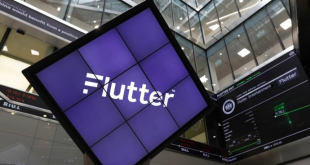In life, there are the certain outcomes of death and taxes, whilst for sportsbooks, there are media rights disputes and data fees.
The rising costs of operating an online sportsbook have divided opinions across the sector regarding the necessity of exclusive media rights packages and the compounding expenses of data fees.
At the SBC Summit Barcelona, a panel of sportsbook directors discussed the escalating costs of media rights and data packages, sharing diverse opinions on the shifting dynamics between bookmakers and their primary suppliers.
The discussion was moderated by Aidan Barry, Group Head of Sportsbook for Fortuna Entertainment (FEG), who remarked on the panel’s composition: “Three sportsbooks and no supplier – I hope this isn’t a customer complaints panel.”
Recognising the complexities and divergent views on the topic, James Watson, Director of Product Development at Kwiff, noted: “Everyone desires a harmonious relationship with their suppliers, but we must differentiate between good data and official data – they aren’t the same.
“We’ve encountered instances where a supplier provided non-official data, which we used effectively for a while. Later, they switched to an official package, which costs more and has a premium. However, from a bookmaker’s perspective, we didn’t see any improvement in the product.
“No enhancement in product speed, feed reliability, or content… all we received was a brochure stating that they are an ‘official partner’.
“Indeed, you can present things appealingly. Yet, our message remains simple: create a dependable data service, and bookmakers will seek you out.”
Dominic Crosthwaite, Chief Trading Officer of Flutter Entertainment Plc, emphasised the reliability and differentiation of data packages needed to cater for the diverse needs of tier-1 operator’s sportsbook portfolio.
“Some rights holders aim to innovate, introducing features like event centres for their exclusive products. However, true innovation often necessitates involvement from the sport’s federation, which seems lacking.”
Crosthwaite acknowledges the significant investment by suppliers in streamlining data and content packages for clients, but he expresses concern about the move towards standardisation.
“Every supplier markets their package based on innovation when what’s truly needed is ‘experimentation’. Can suppliers let customers experiment with their exclusive data and media packages? This will assist us in refining our end products and enhancing our market offerings.
“In an ideal scenario, we’d like our partners to facilitate innovation, presenting data and streams uniquely. Clients should have the ability to distinguish themselves from rivals – that’s how standard markets operate.”
Freddie Bowring, VP of Sales at BtoBet voiced concerns about supplier monopolies taking data ownership of traditional sports, stating: “For prominent sports, the market is increasingly dominated by three or four suppliers. This is verging on monopolistic.”
While Bowring recognises advancements in packages for PGA golf and motorsports like Formula-1, he believes that “for longstanding, high-turnover sports, competition has stagnated.”
Highlighting the data structure of British horseracing, which is controlled by two exclusive suppliers, Aidan Barry pointed out that data costs have surged by “60% or more year-on-year – reaching a tipping point for sportsbooks.”
Bowring responded: “It’s worrying because for certain clients, horseracing has become a loss leader. This isn’t sustainable for a sport that relies on punters betting.
Acknowledging clients’ heightened sensitivities about generating ROI for each market offered, Bowring stated, “some content merely serves as a loss leader.”
“Everyone is vying to cover the ‘big-five’ football leagues, yet the content with higher margins is often the less popular inventory that generates the most profit.
“All federations are aware of each other’s dealings and know the prices at which individual rights were sold by intermediaries. Yet, we don’t have a say in this process, even though we’re the end-users of these data packages.”









